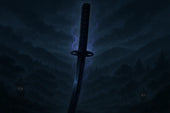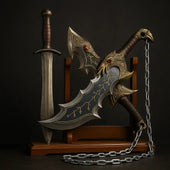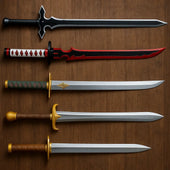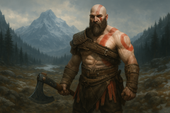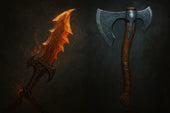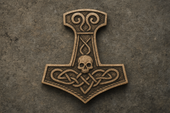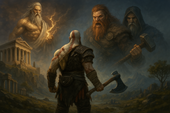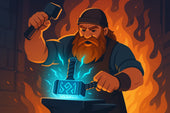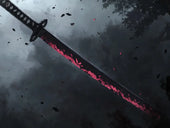When Arya Stark leapt from the shadows and delivered the fatal blow to the Night King in Game of Thrones Season 8, Episode 3 (“The Long Night”), fans around the world either gasped in triumph or furrowed their brows in disbelief. The moment was unexpected, subversive, and controversial — but above all, it made perfect sense.
Despite the polarised reception, Arya’s kill was not a random act of spectacle. It was the climax of years of careful character development, prophecy, training, and narrative design—more than just shock value, it was the ultimate payoff for her story in Game of Thrones.
In this blog, we’ll explore Arya’s journey, the criticism surrounding her role in the Game of Thrones finale, and why her slaying of the Night King wasn’t just deserved — it was inevitable.
Arya Stark’s Journey: From Innocent Noble to Deadly Assassin
Arya Stark began her journey in Winterfell as the feisty younger daughter of Ned Stark — rebellious, curious, and far more interested in swordplay than sewing. From the moment she received Needle, her beloved blade, Arya rejected the traditional role society had planned for her.
Her story quickly became one of survival and transformation. After witnessing her father's execution in King's Landing, Arya went on the run, navigating a war-torn Westeros, adopting false identities, and learning to kill. Her journey took her to Braavos, where she trained with the Faceless Men — a secretive guild of assassins who taught her to master stealth, agility, and death itself.
By the time she returned to Westeros, Arya Stark was no longer the child who’d left. She was a faceless killer with a list of names and a singular focus: vengeance. Yet, beneath that hardened exterior remained a Stark — loyal, brave, and determined to protect her family and home. All of this culminated in her taking centre stage during the Battle of Winterfell.
The Controversy: Why Some Fans Disagreed
The decision for Arya Stark to kill the Night King sparked immediate and heated debate across the Game of Thrones fanbase. For many, the moment was thrilling and unexpected. For others, it was jarring — a twist that felt unearned or inconsistent with the show’s long-standing narrative build-up. After all, much of the series’ mythos and prophecy seemed to point towards another character as the Night King’s destined opponent: Jon Snow.
So what were the main criticisms?
“It should’ve been Jon Snow.”
As the resurrected Targaryen heir, former Lord Commander of the Night’s Watch, and proven warrior against the White Walkers, Jon Snow was widely believed to be the prophesied saviour — Azor Ahai, the Prince That Was Promised. He had fought the Night King’s army multiple times, and his storyline had revolved heavily around the threat from beyond the Wall. Many fans expected him to face the Night King in a final, mythic confrontation — a climactic moment of destiny.
“Arya came out of nowhere.”
Some viewers felt that Arya’s sudden leap from the shadows during the final confrontation lacked adequate narrative setup. While her training with the Faceless Men established her abilities, critics argued the show didn’t provide enough direct clues that she would be the one to defeat the Night King. To them, the moment felt like a dramatic twist chosen for shock value rather than storytelling logic.
“The final season was rushed.”
Season 8 was widely criticised for its compressed timeline and fast pacing. Major plot points that could have been expanded over several episodes — or even entire seasons — were resolved quickly. Arya’s moment of triumph, while memorable, felt to some like a shortcut, bypassing the slow-burning foreshadowing that defined earlier seasons.
These criticisms were fuelled by the enormous expectations built over nearly a decade. The Night King had loomed as an existential threat since the very first scene of the series. Fans anticipated a mythic clash of light versus darkness, led by a central male hero — perhaps even a tragic ending to match the tone of the show’s earliest shocks. Arya’s sudden, decisive action challenged that expectation, subverting the traditional fantasy structure and offering an ending that caught many off guard. Whether that worked or not became one of the most hotly debated topics in the show’s entire run.
Why Arya Was the Right Choice
Despite the controversy, Arya’s role in the Night King’s defeat aligns beautifully with her narrative arc. Here’s why it made complete sense for her to be the one to end the greatest threat to humanity:
Narrative Payoff
Arya’s entire story has been leading up to this moment. She trained to become a faceless assassin — silent, deadly, unpredictable. Her kill was not brute force; it was stealth, skill, and surprise. In many ways, she was the only one capable of getting close enough to the Night King to strike.
Moreover, Arya’s early Season 3 interaction with Melisandre included a significant prophecy:
“I see a darkness in you. And in that darkness, eyes staring back at me: brown eyes, blue eyes, green eyes. Eyes you’ll shut forever.”
The blue eyes were widely interpreted as a direct reference to the Night King and his army of White Walkers. Arya’s kill fulfilled that prophecy and gave her story a deeper layer of purpose.
She’s Always Been a Weapon of Death
Arya isn’t just a survivor — she’s a hunter. She’s executed calculated, high-stakes assassinations before (remember Walder Frey?), and she’s spent years learning how to move like a ghost. Killing the Night King required those very skills.
Let’s not forget her sparring scene with Brienne in Season 7. It foreshadowed her speed, creativity, and ability to outwit even the most formidable opponents.
Her Connection to the Stark Legacy
The Battle of Winterfell was, at its core, a fight for Arya’s ancestral home. She wasn’t just saving the world — she was protecting her family, her people, and the North. A Stark killing the Night King in the godswood, surrounded by the heart trees of her ancestors, gave the scene a poetic symmetry.
Why Not Jon Snow?
The strongest counter-argument has always been Jon Snow. He had the bloodline, the backstory, and the drive. So why wasn’t he the one?
Jon’s Purpose Was Bigger Than One Kill
Jon’s role was to unify the living — to bridge the divide between the wildlings and the South, to expose the threat of the undead, and to convince others to fight. His strength was in leadership, not prophecy.
Throughout the final battle, Jon is shown fighting valiantly but ultimately failing to reach the Night King. This emphasised that brute force alone couldn’t win this war. It needed cunning and surprise — something Arya brought in spades.
Subverting Expectations Is the Game of Thrones Way
Let’s not forget that Game of Thrones built its reputation by doing the unexpected. Ned Stark died in Season 1. The Red Wedding shattered all notions of safety. So when Arya killed the Night King, it was consistent with the series’ philosophy: heroes don’t always win in traditional ways, and prophecies are often misread.
Did Arya Kill the Night King in the Books?
No — and for good reason.
As of now, George R.R. Martin’s A Song of Ice and Fire series has not reached this point in the story. In fact, the Night King doesn’t exist in the books. The show’s Night King is a creation of HBO, developed to give the lead characters a single, visible antagonist.
In the novels, the undead threat is more abstract. The Others (as they’re called) remain shadowy and mysterious. Arya, meanwhile, is still training in Braavos and has not yet returned to Westeros.
So, while Arya’s killing of the Night King is unlikely to be mirrored in the books, the themes of stealth, vengeance, and the Stark family’s role in defending the North may still apply in some form.
Conclusion: Arya’s Moment Was Earned, Not Gifted
Arya Stark’s defeat of the Night King wasn’t a fluke, a twist for shock value, or an attempt at subverting prophecy for its own sake. It was the culmination of years of growth, training, trauma, and survival.
She didn’t just kill the Night King — she saved Westeros when no one else could. Her arc wasn’t about honour or prophecy. It was about action, about doing what needed to be done in the moment, regardless of legend or legacy.
In a world of knights, kings, dragons, and ice zombies, it was a girl with a blade and a mission who saved the world. And that, in true Game of Thrones fashion, was the most fitting ending of all.
Want your own Needle or Valyrian steel replica?
Explore our Game of Thrones-inspired weapons collection at The Sword Stall, where iconic blades come to life for true fans of Westeros.








